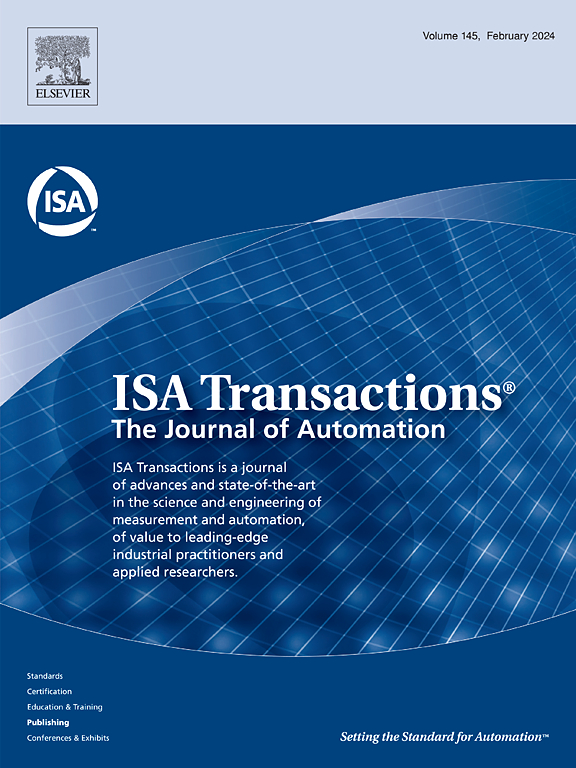时变饱和极限过驱动ROV的饱和非奇异终端滑模控制器设计。
IF 6.5
2区 计算机科学
Q1 AUTOMATION & CONTROL SYSTEMS
引用次数: 0
摘要
当一组作动器同时控制具有不同抗扰程度的多个自由度时,输入饱和对过度驱动系统至关重要。目前的研究引入了一种新型的饱和非奇异终端滑模控制器来解决过度驱动的遥控机器人(ROV)的输入饱和问题。该控制器包含一种调谐算法,以确保控制命令不违反每个自由度的时变饱和限制。此外,设计了一个固定时间的扩展状态观测器来估计车辆的速度以及系统的集总未知动力学。观察者也被用作在极端环境条件下保持ROV方向的工具。稳定性分析表明,除偏航角外,系统的所有状态都是全局有限时间稳定的,偏航角是全局渐近稳定的。仿真结果表明,所提出的控制器在定位精度、饱和补偿和不同环境下的瞬态行为方面具有优越性。本文章由计算机程序翻译,如有差异,请以英文原文为准。
Fixed-time observer-based saturated nonsingular terminal sliding mode controller design for an over-actuated ROV with time-varying saturation limits
Input saturation is critical in over-actuated systems when multiple degrees of freedom (DOF) with different levels of disturbance rejection are controlled simultaneously by a set of actuators. The current study introduces a novel saturated non-singular terminal sliding mode controller to address input saturation for an over-actuated remotely-operated vehicle (ROV). The proposed controller consists of a tuning algorithm to ensure that the control commands do not violate the time-varying saturation limits of each DOF. In addition, a fixed-time extended-state observer is designed to estimate the vehicle’s velocity along with the lumped unknown dynamics of the system. The observer is also employed as a tool to maintain the orientation of the ROV in extreme environmental conditions. The stability analysis shows that all system’s states, except for yaw angle, are globally finite-time stable and the yaw angle is globally asymptotically stable. Several sets of simulations are carried out and the results demonstrate the superiority of the proposed controller in terms of positioning accuracy, saturation compensation and transient behaviour under different environmental conditions.
求助全文
通过发布文献求助,成功后即可免费获取论文全文。
去求助
来源期刊

ISA transactions
工程技术-工程:综合
CiteScore
11.70
自引率
12.30%
发文量
824
审稿时长
4.4 months
期刊介绍:
ISA Transactions serves as a platform for showcasing advancements in measurement and automation, catering to both industrial practitioners and applied researchers. It covers a wide array of topics within measurement, including sensors, signal processing, data analysis, and fault detection, supported by techniques such as artificial intelligence and communication systems. Automation topics encompass control strategies, modelling, system reliability, and maintenance, alongside optimization and human-machine interaction. The journal targets research and development professionals in control systems, process instrumentation, and automation from academia and industry.
 求助内容:
求助内容: 应助结果提醒方式:
应助结果提醒方式:


